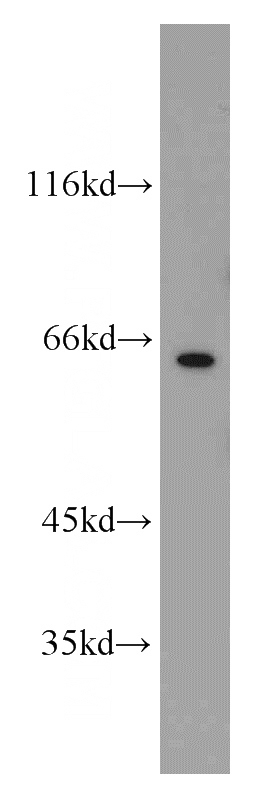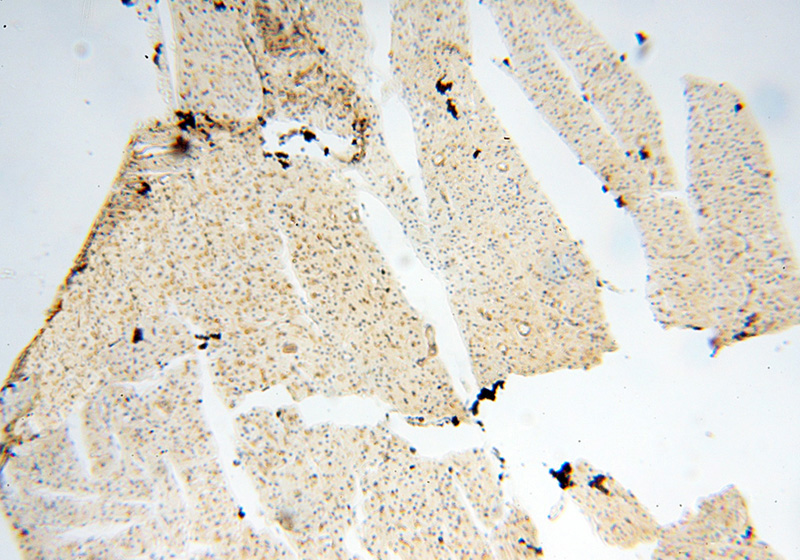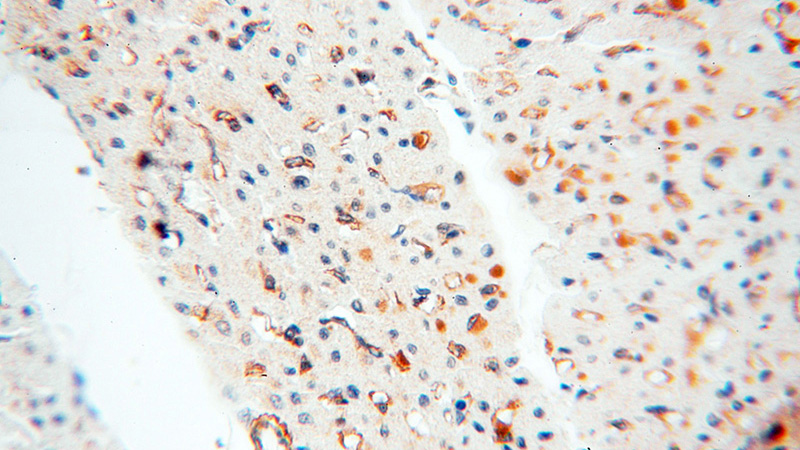-
Product Name
Granulin antibody
- Documents
-
Description
Granulin Rabbit Polyclonal antibody. Positive IHC detected in human heart tissue, human kidney tissue, human placenta tissue, human skin tissue, human spleen tissue, human testis tissue. Positive WB detected in A431 cells, HEK-293 cells, MCF7 cells. Observed molecular weight by Western-blot: 64 kDa
-
Tested applications
ELISA, WB, IHC
-
Species reactivity
Human; other species not tested.
-
Alternative names
acrogranin antibody; GEP antibody; GP88 antibody; granulin antibody; Granulin A Granulin 5 antibody; Granulin B Granulin 4 antibody; Granulin C Granulin 6 antibody; Granulin D Granulin 7 antibody; Granulin E antibody; Granulin F Granulin 3 antibody; Granulin G Granulin 2 antibody; Granulins antibody; GRN antibody; PCDGF antibody; PEPI antibody; PGRN antibody; Proepithelin antibody
-
Isotype
Rabbit IgG
-
Preparation
This antibody was obtained by immunization of Granulin recombinant protein (Accession Number: XM_005257253). Purification method: Antigen affinity purified.
-
Clonality
Polyclonal
-
Formulation
PBS with 0.1% sodium azide and 50% glycerol pH 7.3.
-
Storage instructions
Store at -20℃. DO NOT ALIQUOT
-
Applications
Recommended Dilution:
WB: 1:200-1:2000
IHC: 1:20-1:200
-
Validations

A431 cells were subjected to SDS PAGE followed by western blot with Catalog No:111158(PCDGF,GRN antibody) at dilution of 1:500

Immunohistochemical of paraffin-embedded human heart using Catalog No:111158(PCDGF,GRN antibody) at dilution of 1:50 (under 10x lens)

Immunohistochemical of paraffin-embedded human heart using Catalog No:111158(PCDGF,GRN antibody) at dilution of 1:50 (under 40x lens)
-
Background
GRN, also known as PGRN or PCDGF, is a cysteine-rich protein of 68.5 kDa that is typically secreted into a highly glycosylated 88 kDa form. PGRN is a unique growth factor that plays an important role in cutaneous wound healing. It has an anti-inflammatory effect and promotes cell proliferation. When PCDGF is degraded to several 6–25 kDa fragments, called granulins (GRNs) by neutrophil proteases, a pro-inflammatory reaction occurs. PGRN is widely expressed, particularly in epithelial cells, immune cells, neurons, and chondrocytes. High levels of PGRN expression have been reported in human cancers, and its expression is closely correlated with the development and metastasis of several cancers. The recent discovery that mutations in the gene encoding for pro-granulin (GRN) cause frontotemporal lobar degeneration (FTLD), and other neurodegenerative diseases leading to dementia, has brought renewed interest in progranulin and its functions in the central nervous system.
-
References
- Chen XY, Li JS, Liang QP, He DZ, Zhao J. Expression of PC cell-derived growth factor and vascular endothelial growth factor in esophageal squamous cell carcinoma and their clinicopathologic significance. Chinese medical journal. 121(10):881-6. 2008.
Related Products / Services
Please note: All products are "FOR RESEARCH USE ONLY AND ARE NOT INTENDED FOR DIAGNOSTIC OR THERAPEUTIC USE"
